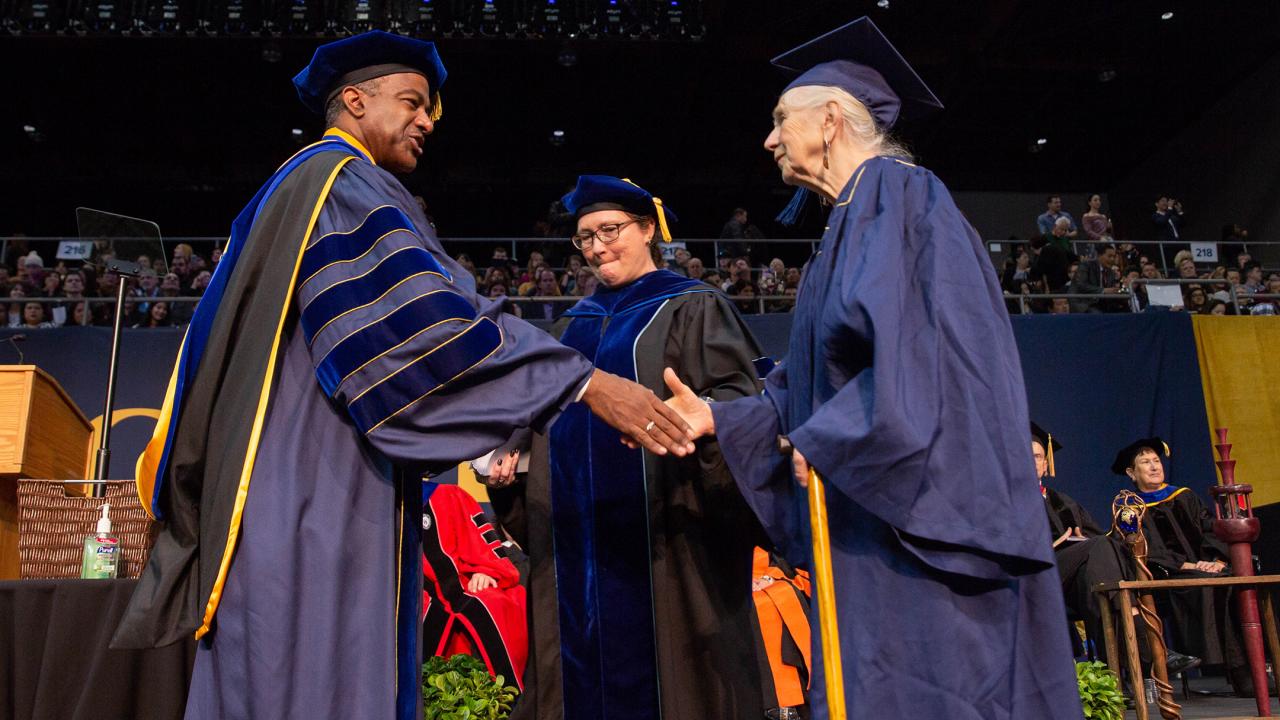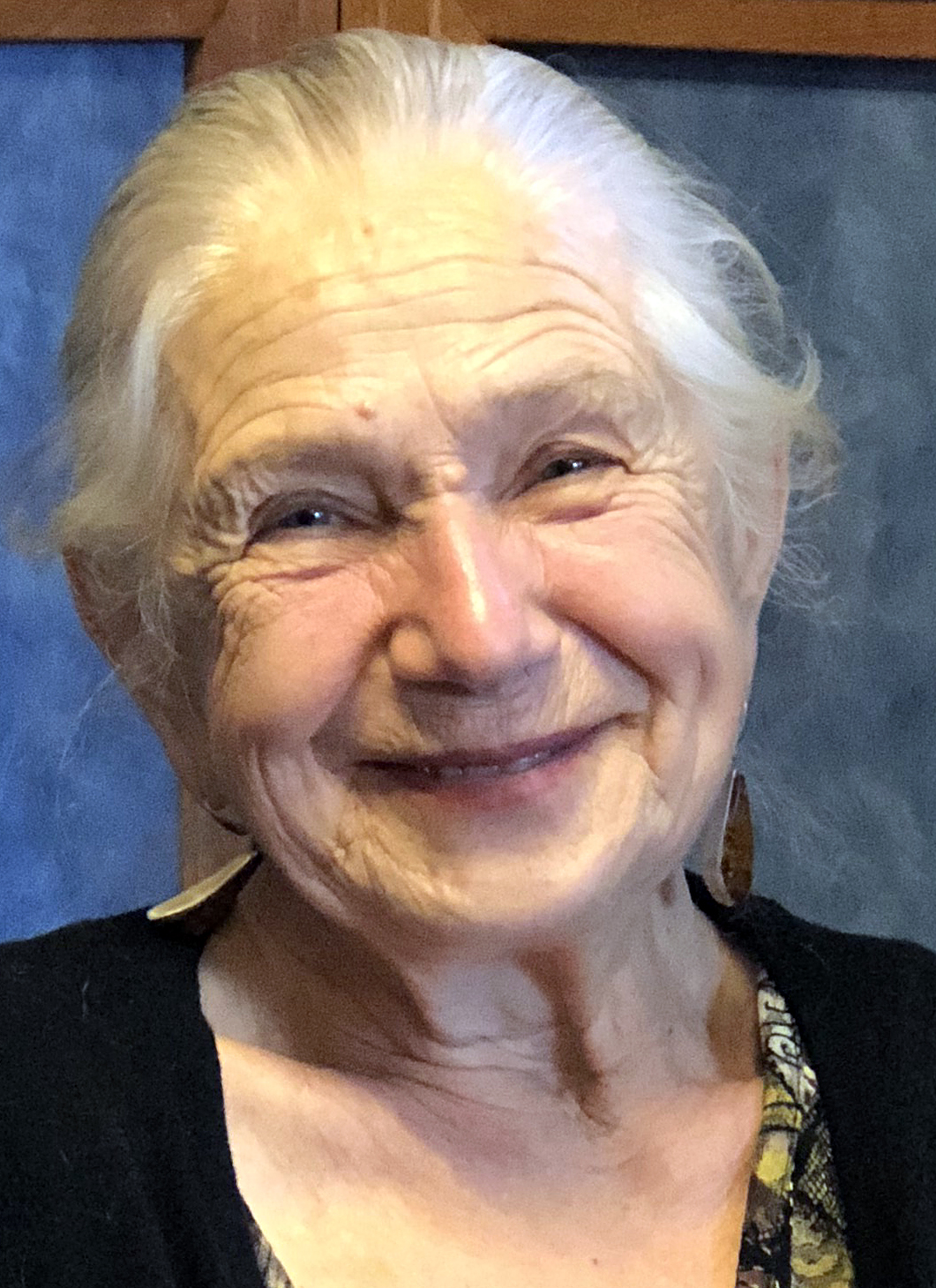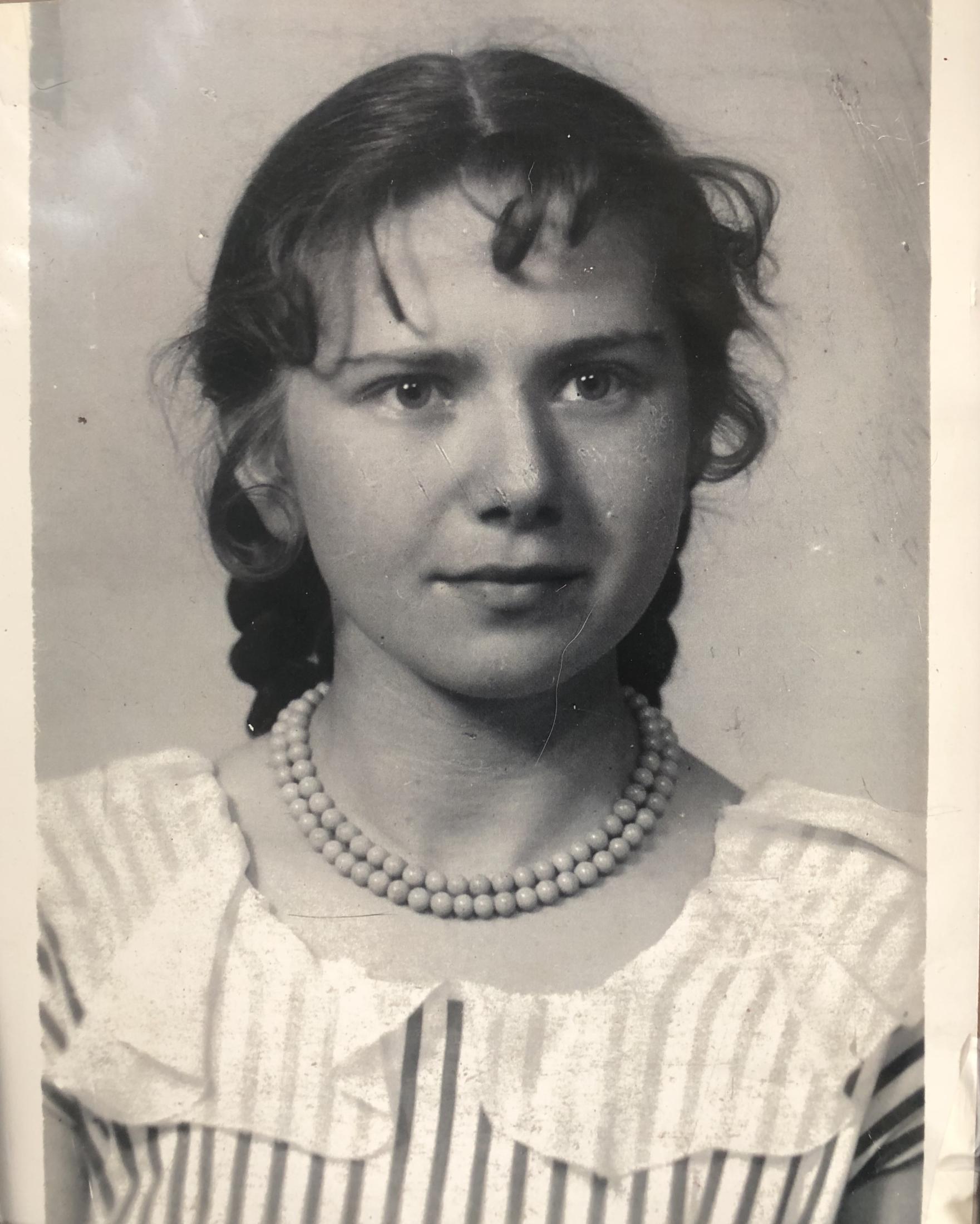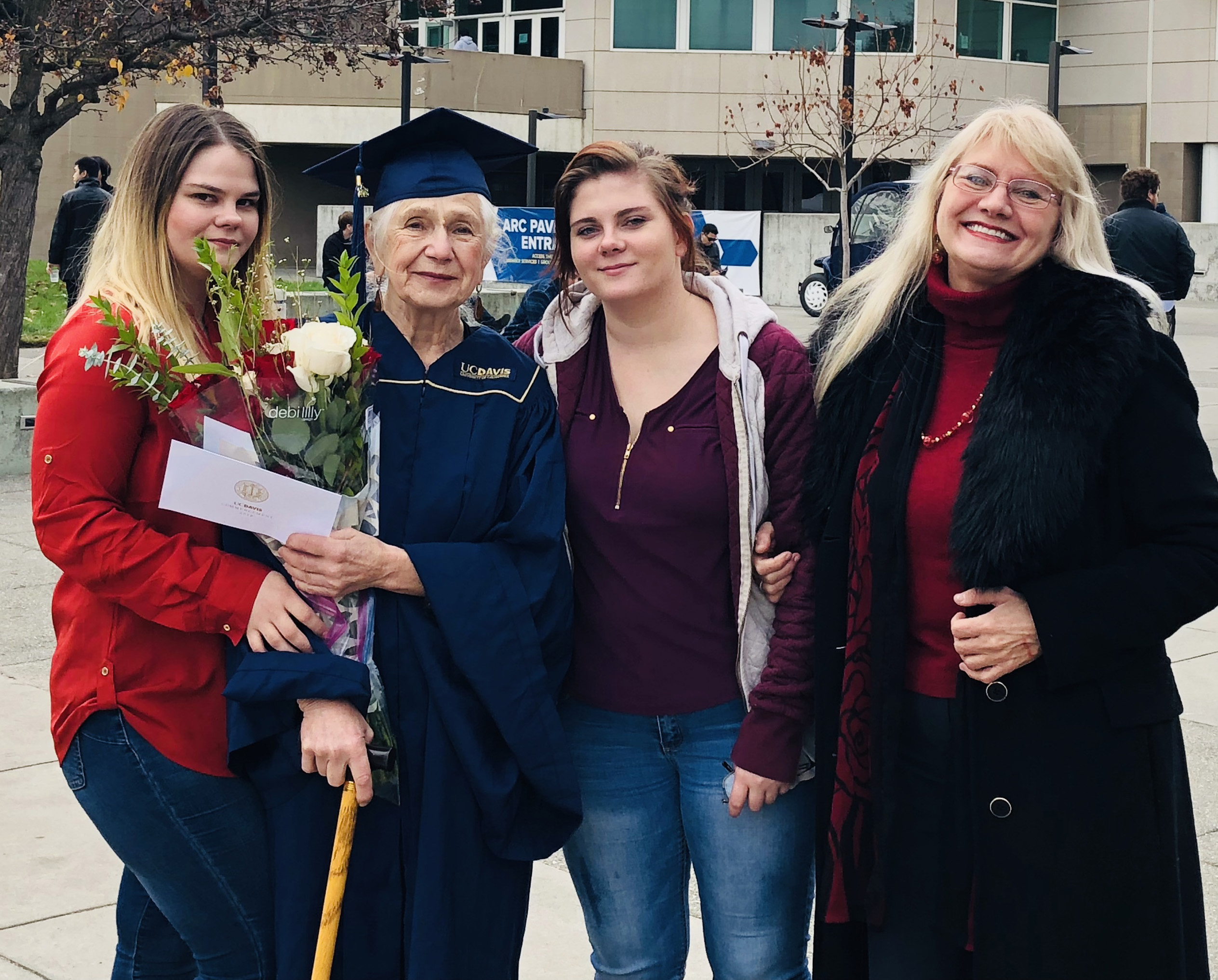
Lifelong Learner Earns History Degree at 84
Russian émigré overcomes language, age and health challenges to graduate from UC Davis.
College was a lot easier the first time around for Marianna Daniel. Then she was young, her memory was sharp, her hearing keen, and she could easily understand the lectures given in her native Russian.
 When she returned to college on a new continent more than a half century later, Daniel faced language, health and mobility challenges. But the immigrant Californian surmounted them all to finish her second bachelor’s degree — this one in history from UC Davis — at age 84.
When she returned to college on a new continent more than a half century later, Daniel faced language, health and mobility challenges. But the immigrant Californian surmounted them all to finish her second bachelor’s degree — this one in history from UC Davis — at age 84.
“I like to study,” she said. “It was very, very difficult, but I loved [learning].”
Daniel, who frequently uses a walker, crossed the Pavilion stage during fall commencement in mid-December, using a cane and accompanied by her granddaughter, Maria Vilister. (Daniel had finished requirements for her bachelor’s degree last spring, but delayed participating in commencement, in part because June weather was too hot for her.)
History professor emeritus Stylianos Spyridakis said Daniel is one of the most remarkable undergraduates he encountered during his 50 years of teaching at UC Davis — “gifted with an insatiable thirst for knowledge and a keen intellect. Her lifelong academic odyssey is truly inspirational and embodies the maxim of Solon, one of the Seven Sages of ancient Greece, who famously remarked in old age, ‘I grow old learning something new each day.’”
A background in physics

Born in 1934 in Moscow, Daniel spent most of her life in the capital city of the former Soviet Union and, since 1991, the Russian Federation. She attended Moscow State University from 1951 to 1956, earning two degrees — a bachelor’s and a master’s — both in physics.
She married twice, both times to men who were physicists and her colleagues, and had three children — two daughters and a son. In addition to working on nanotechnology projects, she translated documents from French, German, Italian, Old Slavic and Greek into Russian for the Orthodox Church.
In 2002, she left Moscow to live closer to a daughter who had relocated to Sacramento. A few years later, two of her son’s daughters, Maria, then 8, and her 6-year-old sister, Dara, also emigrated — and Daniel adopted them.
A decade-long journey
In Sacramento, Daniel worked full time at a Macy’s department store, putting price tags on merchandise, before going back to school part time — first at Sacramento City College in 2008 and transferring to UC Davis in 2013–14.
“I began studying English when I was 70 years old,” she said. Her limited English proficiency and a hearing loss made it difficult for Daniel to understand her course lectures. To keep up, she relied on notes shared by other students and put in countless hours of extra reading outside the classroom — in the library, at home or frequently at the Common Grounds café in south Davis.
High-blood pressure made it difficult for Daniel to sit for long periods, and forced her to leave class when her blood pressure spiked. And two years ago, adding to her physical challenges, she broke a hip.
Help from family, faculty

Granddaughter/adopted daughter Vilister, beginning as an eighth-grader, helped with typing, translating and editing Daniel's handwritten work for grammar and style. She also contacted professors to relay her grandmother's questions — and after the hip injury to explain that Daniel was on pain medication when she completed a philosophy essay on existentialist philosopher Martin Heidegger.
Many professors made accommodations for Daniel’s language and physical challenges, giving her additional time to finish assignments and allowing her to take tests home.
Vilister, a nursing student, said helping her grandmother over the past decade gave her an early introduction to higher education. “I feel like I was in college since I was 14.” But she said she was glad to give back to her grandmother. “She raised me. She gave me 13 years of her life.”
A genealogy of world events
Family was a major motivator for studying history, Daniel said. She wanted to better understand the historical contexts of her own family’s complicated saga. “The history of my family is part of the histories of different countries,” she said.
Her mother came from Russian nobility and her father was the son of German and Greek immigrants. Her parents’ fathers worked together in the early years of the Soviet Union — her mother’s father was an Army general and her father’s father manufactured guns for the military. Daniel said her grandfathers hated each other, making her parent’s romance like Shakespeare’s Romeo and Juliet, minus the tragic ending.
The rise and fall of the Soviet Union, of course, featured prominently in her family’s story. Her mother's education had been interrupted by the 1917 Russian Revolution. The communist government viewed Daniel’s mother as a daughter of the enemy because of her aristocratic heritage, and it was difficult for her to get work until her husband, an Army general, helped her find a job.
Growing up, Daniel was one of five family members living in a single room. Daniel said her grandfathers were in and out of the Gulag labor camps — one for his noble lineage and the other for his German descent — and the family lived under constant watch.
Taught to question
Daniel credits her own inquisitiveness to the tutelage of a well-educated neighbor. The woman took her under her wing and taught her to question nearly everything. “In my life, I ask some difficult questions,” she said. “Every time, I have a different opinion.”
She brought her dialectical approach to her classes at UC Davis, searching for counterarguments to any point of view and often challenging the conclusions of her professors. “She doesn’t believe everything she reads in textbooks,” Vilister said.
A lifelong fan of Immanuel Kant, Daniel took a number of philosophy courses in addition to studying the history of much of the world: Europe, China, Japan, Egypt, Africa, South American and the United States. Her other courses included physics, anthropology and, for physical education, walking and Zumba.
Still more to learn
Daniel's favorite subject was ancient history, particularly the Etruscan civilization that preceded the Romans in central Italy. “It was a very, very interesting culture,” she said.
So interesting to Daniel that she wants learn more about the Etruscans.
Searching for the English words, Daniel spoke in Russian to her granddaughter. Vilister translated: “She wants to go to graduate school.”
